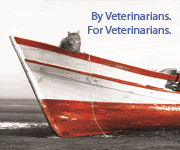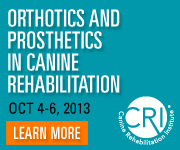320,000 novel viruses live in mammals, study extrapolates An estimated 320,000 as-yet-unknown viruses are living within nonhuman mammals, and many may be zoonotic, according to a study based on PCR evaluation of samples from 1,897 bats in Bangladesh. The authors say identifying all the viruses living in animals would help expose those with the potential to jump species into humans and pose a serious global public health threat. "A more systematic, multidisciplinary, and One Health framework is needed if we are to understand what drives and controls viral diversity and following that, what causes viruses to emerge as disease-causing pathogens," researcher Simon Anthony said. PhysOrg.com (9/3) Calif. forensic lab uses animal DNA to solve crimes The University of California, Davis' Veterinary Genetics Laboratory helps law enforcement investigators by analyzing animal DNA from crime scenes. The lab's three scientists can help solve crimes such as murder, rape and animal abuse, and they want more people to know what they can do. "What's frustrating right now is we know there are a lot of cold cases out there where there's animal evidence that can be used, and people aren't aware that we can use it," the lab's Teri Kun said. San Francisco Chronicle (free content) (9/1) H1N2 vaccine increases piglets' susceptibility to H1N1 Piglets vaccinated for H1N2 influenza developed worse lung infections when challenged with H1N1 compared with those not vaccinated against H1N2. Vaccine-associated enhanced respiratory disease occurs when a vaccine induces antibodies against one virus that facilitate the infection process of another, related virus. The findings may help direct development of a universal influenza vaccine for humans. MedicalXpress.com (8/30) West Nile virus reported in 11 Mont. horses Six horses in Montana have died out of 11 reported to have been infected with West Nile virus, according to the state's Department of Livestock. Veterinarian Tierney Hall of Billings, Mont., advised people to watch for symptoms such as loss of appetite, depression and weakness in horses. KTVQ-TV (Billings, Mont.) (8/30) Other News  | We're here, even when the tide turns. Life insurance helps protect your family if the unexpected happens.
Click here for details. | | Insulin is important treatment for diabetes in dogs and cats Both dogs and cats can get diabetes, writes veterinarian Janice Huntingford, but dogs have type 1, while 70% of cats with diabetes develop type 2. Insulin is the mainstay of treatment for both species, combined with a diet that addresses the individual animal's condition. Dr. Huntingford notes that most veterinarians use commercial pet food intended for animals with diabetes, and she advises owners not to embark on a homemade diet for animals with diabetes -- or any pets -- without consulting with a veterinarian. The Windsor Star (Ontario) (8/30)  | Get Up to Speed on Orthotics and Prosthetics in One Weekend! Attend the Canine Rehabilitation Institute's continuing education course Orthotics and Prosthetics in Canine Rehabilitation, October 4-6, 2013, in Broomfield (Denver), CO. Learn how V-OP can help canine patients, and gain hands-on experience in wet labs. Add this service to your practice immediately after completing the course. Register online today at www.caninerehabinstitute.com! | |  | Work IN your business, not ON your business Try Managed Marketing with Mediastead. Finding balance between serving clients and promoting your business can be tricky. Too busy with customers, your marketing suffers. Slow your marketing, your cash flow suffers. Marketing is what we do best. Working with animals and their owners is what you do best. Let us help you get back to work. Learn more about Managed Marketing. | | Computer model assesses strategies for addressing feral cat colonies Researchers at the Cummings School of Veterinary Medicine at Tufts University conducted a computer-simulated study examining the effects of vasectomy and hysterectomy on feral cat populations. The study found that the method led to a more rapid reduction in cat numbers compared with the standard trap-neuter-release approach. The study was published in the Journal of the American Veterinary Medical Association. AnnArbor.com (Mich.) (9/2)  |  |  |  | Creating a Smarter Workforce for Market Leadership
• Learn how to quickly and easily identify the right people for the right jobs at precisely the right time.
• Hear how personalized and social experiences can help activate your workforce to improve teamwork, unleash innovation and engage customers.
• Discover how to build a framework to empower a vibrant workforce that delivers better business outcomes for competitive advantage—in the office, on the road or anywhere work takes them.
Watch and learn how leading companies are building a smarter workforce and why it is key to your organization's growth and competitiveness |  |  |  |  |
 | | Most Popular Headlines From Last Week Results based on number of times each story was clicked by readers. | Podcast: Pet blood banks As veterinary medicine has become more advanced, and more treatment options for diseases or trauma become available, the need for blood transfusions has increased. To meet this demand, blood banks for pets have become more common. In this AVMA Animal Tracks podcast, Dr. Leah Cohn, professor of small animal internal medicine at the University of Missouri College of Veterinary Medicine, discusses pet blood banks, the process of pets giving blood, and the Pets Saving Pets program, which serves as a blood bank for the college's teaching hospital. Listen to the podcast. |  | Maturity is reached the day we don't need to be lied to about anything." -- Frank Yerby, American writer | | | The news summaries appearing in Animal Health SmartBrief are based on original information from news organizations and are produced by SmartBrief, Inc., an independent e-mail newsletter publisher. The AVMA is not responsible for the content of sites that are external to the AVMA. Linking to a website does not constitute an endorsement by the AVMA of the site or the information presented on the site. Questions and comments should be directed to SmartBrief at avma@smartbrief.com. | Please contact one of our specialists for advertising opportunities, editorial inquiries, job placements, or any other questions.
| Mailing Address:
SmartBrief, Inc.®, 555 11th ST NW, Suite 600, Washington, DC 20004 | | |


No comments:
Post a Comment